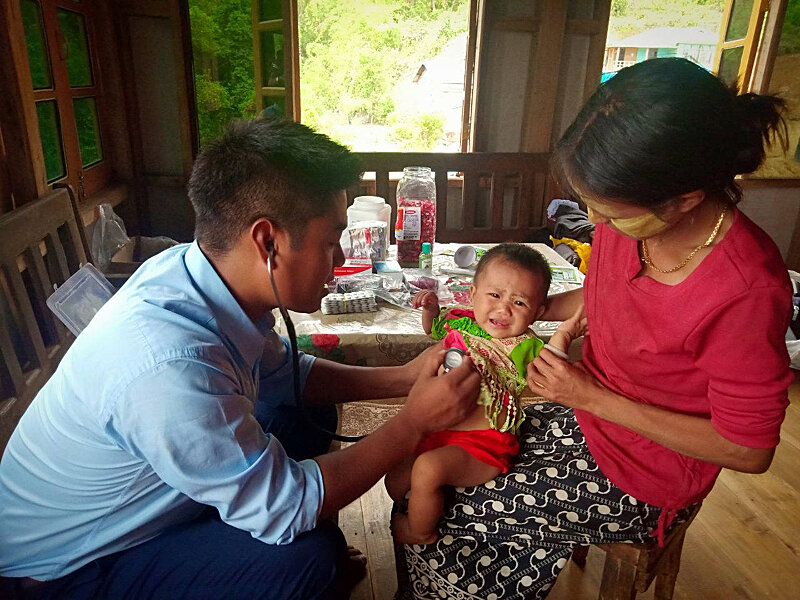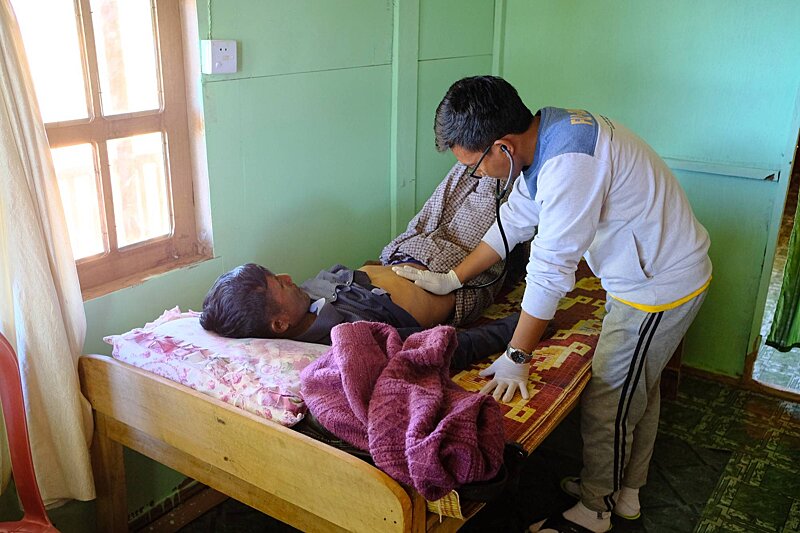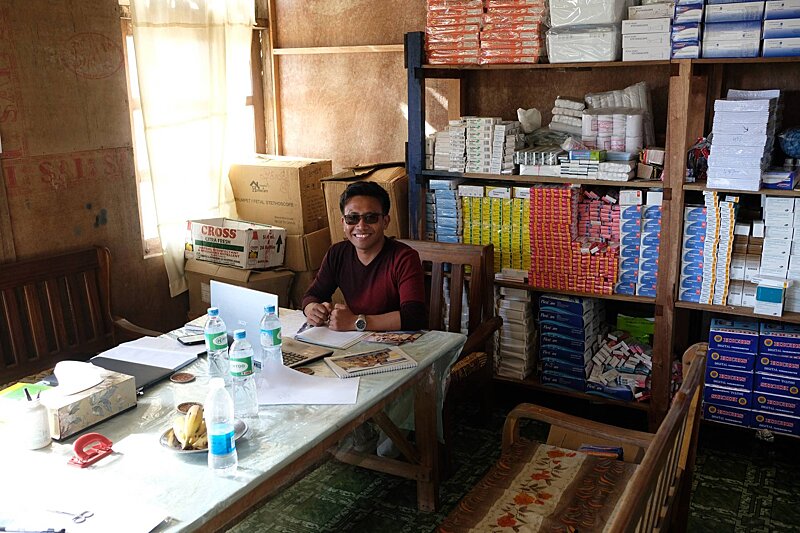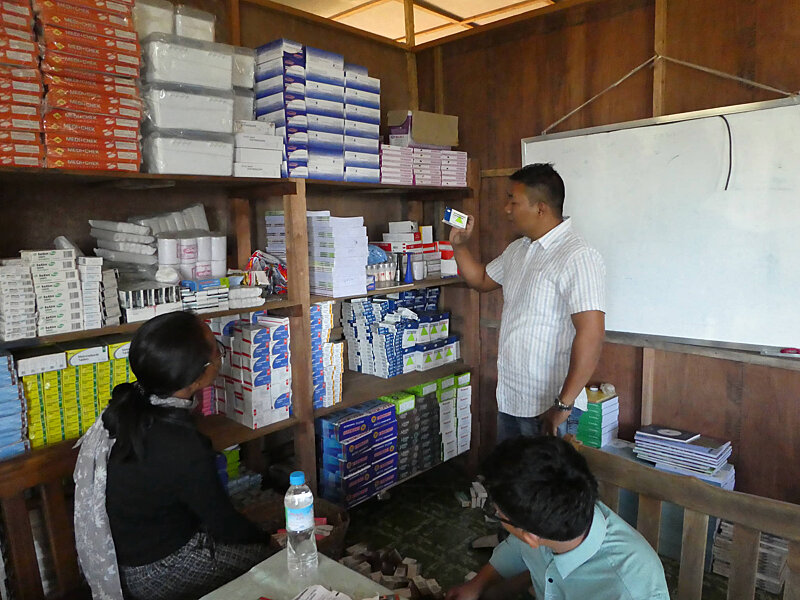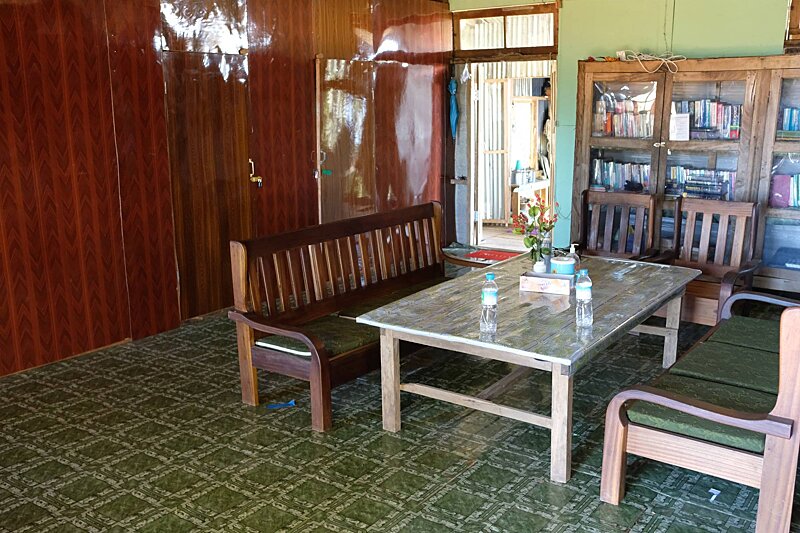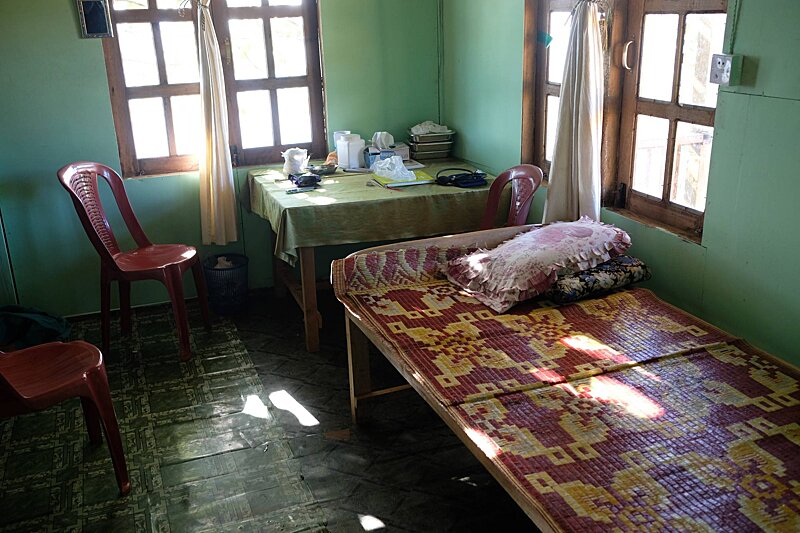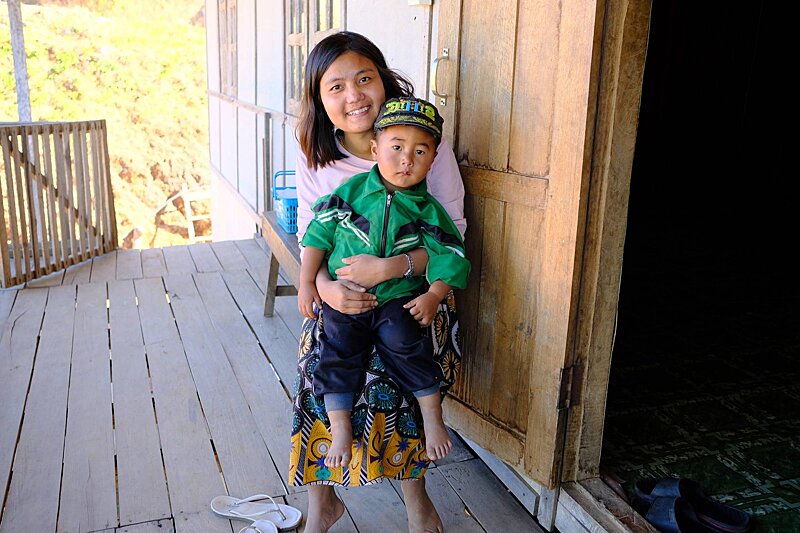Health
Our goal is to improve access to public health and primary medical care in Chin State
Health indicators in Chin State continue to be among the worst in Myanmar. The primary cause of death is from infectious diseases including pneumonia, diarrhoea and malaria – most of which are preventable and treatable. Medicines are scarce and expensive and despite there being numerous health facilities, many are empty and all are understaffed. Due to the distance between villages and towns, patients only travel to a hospital when their deteriorating health conditions are at their worst, with some arriving too late.
The health crisis in Myanmar has been exacerbated by the ongoing effects of the military coup.
Primary Health Care
Our community health projects includes maternal, newborn, and child health, sexual and reproductive health and rights, training for Community Health Workers, mobile clinics, fixed clinics and referral pathways. We target underserved areas and implementation is carried out in collaboration with a network of local partner organisations. Over the last 12 months (2024-25) we have achieved the following:
- 21 individuals were equipped as Community Health Workers Trainers, who then delivered the training to 329 Community Health Workers, each selected from their respective villages.
- Over 7,000 patients have received treatment at the 9 community clinics (fixed clinics).
- Over 4,800 patients were treated through outreach services via mobile clinics.
- Community Health Workers have provided consultations to over 59,000 individuals.
- Over 6,400 children were screened for signs of malnutrition. Among these, 286 children were identified as malnourished and received treatment through the provision of nutritional supplements.
- Over 270 patients were referred to hospitals for secondary-level treatment. Medical and transportation costs were covered to ensure access to appropriate care.
- 843 pregnant women received antenatal care through our fixed clinics.
Community Ambulance
Out of many, one of the biggest problems faced by displaced families is timely access to medical facilities during medical emergencies, childbirth and sickness. Due to their remote location and difficulties in access by road most of the existing medical and ambulance services do not have ability to reach hard to access rural areas. This is particularly relevant for pregnant women who struggle to access antenatal care and supported delivery by appropriately trained clinicians, especially for the communities who often cannot access health care.
Local information has shown that there are no ambulance services available at all in remote areas we serve. In addition, many of the villages are still not accessible by normal vehicles especially during the monsoon except by vehicles which are four-wheel drive (4WD).
Health & Hope have sought to meet this need through establishing a community ambulance service to reach out and respond to medical emergencies in the most remote and isolated locations, where the rest of the medical services are not able to reach.
This will improve the accessiblity of urgent and emergency healthcare for displaced, conflict affected and low resource community populations who are not yet reached by the existing medical and ambulance services. This is due to launch imminently with additional funding.
Our Health projects prior to the military coup
Prior to the military coup, from 2008 to 2021, Health & Hope trained 791 Community Health Workers (CHWs), 32 Area Coordinators (ACs) and 126 Traditional Birth Attendants (TBAs). In addition, 14 local Trainer of Trainers have been trained who have in turn delivered Maternal & Neonatal health training to 101 TBAs in remote villages. This network of locally trained health workers forms part of the community-led response to health challenges across the region, providing support to a population of 150,000 people across 445 partner villages.
Please click the links below to our historic projects:
Summary
Based in Lailenpi, Hope Clinic was built in 2016, and provided services to just under 2,000 patients in and around Lailenpi each year. The clinic has room for up to six inpatients and, in emergencies, provided a referral and transport service to hospitals in Pakokku or Yangon. The clinic also acted as a clinical training centre for CHWs and TBAs, and as a base for a mobile medical team who conducted clinics in remote villages.
At present the clinic is closed due to instability in Myanmar as a result of the military coup.
Challenge
Health indicators in Chin State are poor and due to the remoteness between villages, patients only travel to a hospital when their deteriorating health conditions are at their worst, with some arriving too late. The rural poor are most affected by the lack of investment in healthcare.
Solution
Hope Clinic was constructed in 2016 to provide outpatient and inpatient services to 2,000 patients each year from the community in and around Lailenpi. The clinic provided outpatient services six days a week and, in emergencies, provided a referral service and finances transport to hospitals in larger towns and cities across the country. This service often saved families going into lifelong debt in order to reach expert clinical care in hospital.
The clinic also acted as a clinical training centre for Area Co-ordinators (ACs), Community Health Workers (CHWs), Trainer of Trainers and Traditional Birth Attendants (TBAs) and a base from which to run community health education campaigns.
Sadly, due to insecurity in Myanmar, the Hope Clinic has had to temporarily close but we hope that one day we may be able to re-open it.




